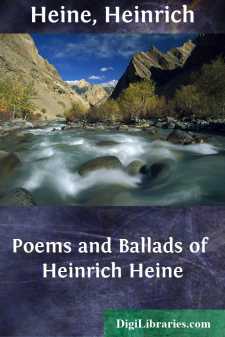Categories
- Antiques & Collectibles 13
- Architecture 36
- Art 48
- Bibles 22
- Biography & Autobiography 816
- Body, Mind & Spirit 145
- Business & Economics 28
- Children's Books 18
- Children's Fiction 14
- Computers 4
- Cooking 94
- Crafts & Hobbies 4
- Drama 346
- Education 58
- Family & Relationships 59
- Fiction 11831
- Foreign Language Study 3
- Games 19
- Gardening 17
- Health & Fitness 34
- History 1378
- House & Home 1
- Humor 147
- Juvenile Fiction 1873
- Juvenile Nonfiction 202
- Language Arts & Disciplines 89
- Law 16
- Literary Collections 686
- Literary Criticism 179
- Mathematics 13
- Medical 41
- Music 40
- Nature 179
- Non-Classifiable 1768
- Performing Arts 7
- Periodicals 1453
- Philosophy 66
- Photography 2
- Poetry 897
- Political Science 203
- Psychology 45
- Reference 154
- Religion 516
- Science 126
- Self-Help 86
- Social Science 82
- Sports & Recreation 34
- Study Aids 3
- Technology & Engineering 59
- Transportation 23
- Travel 463
- True Crime 29
Our website is made possible by displaying online advertisements to our visitors.
Please consider supporting us by disabling your ad blocker.
Poems and Ballads of Heinrich Heine
by: Heinrich Heine
Description:
Excerpt
HEINRICH HEINE.
(BIOGRAPHICAL SKETCH.)
Harry Heine, as he was originally named, was born in Düsseldorf on the Rhine, December 13th, 1799. His father was a well-to-do Jewish merchant; and his mother, the daughter of the famous physician and Aulic Counlor Von Geldern, was, according to her son, a "femme distinguée." His early childhood fell in the days of the occupation of Düsseldorf by the French revolutionary troops; and, in the opinion of his biographer Strodtmann, the influence of the French rule, thus brought directly to bear upon the formation of his character, can scarcely be exaggerated. His education was begun at the Franciscan monastery of the Jesuits at Düsseldorf, where the teachers were mostly French priests; and his religious instruction was at the same time carried on in a private Jewish school. His principal companions were Jewish children, and he was brought up with a rigid adherence to the Hebrew faith. Thus in the very seed-time of his mental development were simultaneously sown the germs of that Gallic liveliness and mobility which pre-eminently distinguish him among German authors, and also of his ineradicable sympathy with things Jewish, and his inveterate antagonism to the principles and results of Christianity.
As the medical profession was in those days the only one open to Jews in Germany, the boy Heine was destined for a commercial career; and in 1815 his father took him to Frankfort to establish him in a banking-house. But a brief trial proved that he was utterly unsuited to the situation, and after two months he was back again in Düsseldorf. Three years later he went to Hamburg, and made another attempt to adopt a mercantile pursuit under the auspices of his uncle, the wealthy banker Solomon Heine. The millionaire, however, was very soon convinced that the "fool of a boy" would never be fit for a counting-house, and declared himself willing to furnish his nephew with the means for a three years, course at the university, in order to obtain a doctor's degree and practice law in Hamburg. It was well-known that this would necessitate Harry's adoption of Christianity; but his proselytism did not strike those whom it most nearly concerned in the same way as it has impressed the world. So far from this being the case, he wrote in 1823 to his friend Moser: "Here the question of baptism enters; none of my family is opposed to it except myself; but this myself is of a peculiar nature. With my mode of thinking, you can imagine that the mere act of baptism is indifferent to me; that even symbolically I do not consider it of any importance, and that I shall only dedicate myself more entirely to upholding the rights of my unhappy brethren. But, nevertheless, I find it beneath my dignity and a taint upon my honor, to allow myself to be baptized in order to hold office in Prussia. I understand very well the Psalmist's words: 'Good God, give me my daily bread, that I may not blaspheme thy name!'"
The uncle's offer was accepted. In 1819 Harry Heine entered the university of Bonn. During his stay in Hamburg began his unrequited passion for a cousin who lived in that city—a passion which inspired a large portion of his poetry, and indeed gave the keynote to his whole tone and spirit. He sings so many different versions of the same story of disappointment, that it is impossible to ascertain, with all his frank and passionate confidences, the true course of the affair. After a few months at Bonn, he removed to the university of Göttingen, which he left in 1822 for Berlin. There is no other period in the poet's career on which it is so pleasant to linger as on the two years of his residence in the Prussian capital. In his first prose work, the Letters from Berlin, published in the Rhenish-Westphalian Indicator, he has painted a vivid picture of the life and gayety of the city during its most brilliant season....



